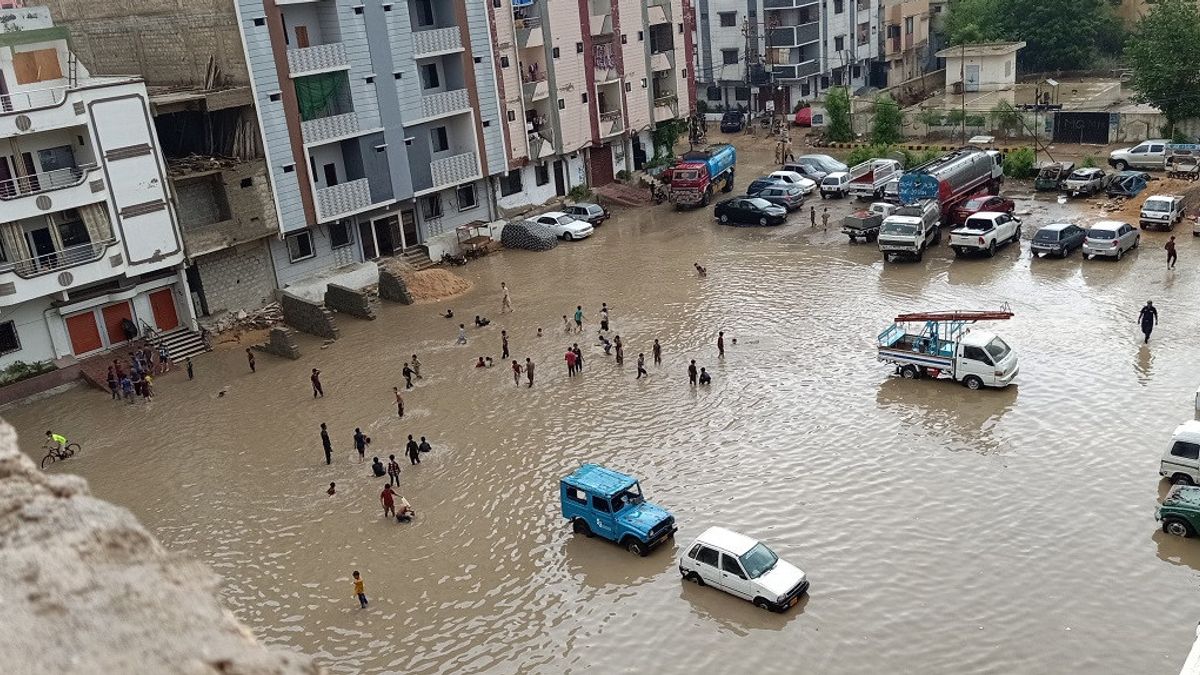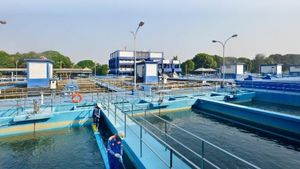JAKARTA - Heavy rains and floods submerged a third of Pakistan and killed more than 1,100 people, including 380 children as the United Nations called for help on Tuesday for what it called an unprecedented climate catastrophe.
Helicopters of soldiers transport stranded families, transporting food packages to inaccessible areas. Floods triggered by unusually heavy monsoon rains, destroying homes, businesses, infrastructure, and plants, affected 33 million people, 15 percent of the South Asian nation's 220 million.
Rainfall in Pakistan as of August, nearly 190 percent more than the average 30 years, with a total of 390.7 millimeters (15.38 inches).
Sindh Province, with a population of 50 million, hardest hit, received 466 percent more rain than the average 30 years.
"A third of these countries are actually underwater," Climate Change Minister Sherry Rehman told Reuters, describing the scale of the disaster as "catastrophic with an unknown precedent".
According to him, the water will not recede in the near future.
Separately Prime Minister Shehbaz Sharif said at least 380 children were among the dead, in a briefing with reporters in his office.
"Pakistan is flooded with suffering," UN Secretary-General Antonio Guterres said in a video message, as the United Nations launched a 160 million call for aid to help the South Asian nation.
"The Pakistanis are facing the rainy season due to steroids, the unrelenting impact of the tremendous rate of rain and flooding."
Guterres will head to Pakistan next week to see the effects of an "unprecedented climate catastrophe," a UN spokesman said. He said the scale of the climate catastrophe ordered the collective attention of the world.
Guterres said the $160 million he hoped to raise with the call would provide 5.2 million people with food, water, sanitation, emergency education, and health support.
He also asked for a quick response to Pakistan's request for an international community for a request for assistance.
Nearly 300 stranded people, including some tourists, were flown in northern Pakistan on Tuesday, a state-run disaster management agency said in a statement. Meanwhile, more than 50,000 people were transferred to two government shelters in the northwest.
Prime Minister Sharif said the amount of aid needed to be "folded up quickly," pledging that "any penny will reach those in need, there will be no waste at all."
Sharif fears the devastation will further address the economy that has been in turmoil, possibly causing acute food shortages and increasing inflation skyrocketing, which hit 24.9 percent in July.
But the loss is likely to be much higher, the prime minister said.
Separately, Pakistan's Foreign Minister Bilawal Bhutto-Zardari said hundreds of thousands of people lived outside the home without access to food, clean water, shelter, or basic health care.
"The situation is likely to worsen further, as heavy rains continue in areas that have been flooded by storms and flooding for more than two months," he said.
Meanwhile, Pakistan's military chief General Qamar badminton Bajwa visited the northern valley of Swat, reviewing rescue and relief operations, saying that "rehabilitation will take a very long time."
Initial estimates suggest flood damage of more than $10 billion, the government said, adding the world has an obligation to help Pakistan, overcome the impact of man-made climate change.
The English, Chinese, Japanese, Arabic, and French versions are automatically generated by the AI. So there may still be inaccuracies in translating, please always see Indonesian as our main language. (system supported by DigitalSiber.id)









